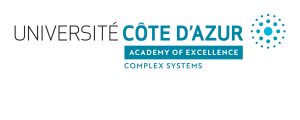Les défauts d’observabilité sont des configurations singulières dans lesquelles les informations à reconstruire sont inaccessibles. Cette situation assez commune dans les systèmes non-linéaires pose encore aujourd’hui de véritables difficultés. Ce sujet a émergé dans les travaux de plusieurs équipes spécialistes des méthodes d’estimation par observateurs, motivées par des applications variées. L’objectif de cette rencontre est de favoriser la collaboration entre les chercheurs de cette communauté.
Présentations des orateurs :
Pauline Bernard (Chargée de recherche et d’enseignement, CAS, Mines ParisTech)
Titre : KKL observer design for non observable systems
Abstract: KKL observer design consists in transforming the plant dynamics into a Hurwitz linear form with output injection whose state can be trivially estimated. Under some observability conditions, this transformation is then shown to be generically left-invertible, thus providing an observer. The goal of this presentation is to show that such a design can still be carried out when the observability conditions fail, but with a transformation that is injective only with respect to the observable part of the state. In other words, KKL design provides intrinsically an observer for the observable states, or any observable functional of the state, namely a functional observer. In particular, we show how a KKL observer was successfully designed to estimate the “non observable” rotor position and resistance in a non-salient Permanent Magnet Synchronous Motor (PMSM) in the sensorless setting, namely when only the electrical signals are measured. More precisely, this system may admit only a finite number of indistinguishable solutions, but indeed admits indistinguishable solutions in some cases. We show how a KKL observer enables to reconstruct this finite number of solutions, which may then be dissociated by additional physical knowledge.
Slides
Lucas Brivadis (Postdoctorant, L2S, Université Paris Saclay)
Titre : Output feedback stabilization of non-uniformly observable control systems
Abstract: When only part of the state of a control system is known, state stabilizing feedback cannot be directly implemented. One must achieve output feedback stabilization instead. A sufficient condition for a (globally) state feedback stabilizable control system to be (semi-globally) output feedback stabilizable is the uniform observability of the system, that is observability for all input. However, it is not generic for control systems to be uniformly observable. Investigating this issue, one can distinguish two cases of study: either the system is not uniformly observable, but the target point corresponds to an input that makes the system observable, or the control is singular at the target point. In the former case, we show how a generic smooth additive perturbation of the state stabilizing feedback allows to get observability along the trajectories of the closed-loop system. Also, if the system is dissipative, no perturbation is needed to achieve dynamic output feedback stabilization. In the latter case, we show on an example how to immerse the original system into a dissipative one, either finite or infinite dimensional. This strategy allows to achieve dynamic output feedback stabilization.
Slides
Emilien Flayac (Postdoctorant, Université de Melbourne)
Titre : Coupled methods of nonlinear control and estimation applicable to Terrain-Aided Navigation
Abstract: In this work, we study the coupled problems of nonlinear control and estimation with application to terrain-aided navigation (TAN). The objective is to guide and estimate the 3D position of a drone flying over a known area. The main difficulty with this application is the nature of the information available on the system. Indeed, it is assumed that the only data available are the speed of the system, a height / ground measurement and a map of the area overflown. As the map is usually created with empirical data, this poses a very complex estimation problem which has been studied extensively since the 1950s. Usually, estimation and control problems are solved separately by invoking the classical separation principle which states that good performance can be obtained by combining a controller with perfect information and an independently designed estimator. However, the separation principle is only applicable for very specific classes of systems, including linear systems. Thus, for a general nonlinear system, control and estimation must be managed together. TAN is a good example of a nonlinear application where the principle of separation cannot be applied because the quality of the observations depends on the control and more precisely on the area overflown by the drone.
Accordingly, the following topics will be addressed
- The design of nonlinear observers and output feedback control for TAN with analytical terrain maps in a continuous time framework through immersion and invariance and delta-persistence.
- The coupled problem of nonlinear optimal filtering and stochastic optimal control in discrete time with imperfect information.
- The design of explicit dual predictive control schemes coupled to a particle filter and their numerical implementation to a nonlinear application (including TAN).
Slides
William Pasillas-Lépine (Chargé de recherche, CNRS, L2S, CentraleSupélec)
Titre : A singular observation problem and its applications in automotive control
Abstract: This talk presents a class of non-uniformly observable systems for which we design a switched observer. The main interest of these systems comes from their ability to describe the wheel dynamics of an automotive vehicle in the context of anti-lock braking. We first explain how to exploit the proposed observers to estimate the extended braking stiffness of the tire. Then, we briefly describe the available stability results for this class of systems. We also illustrate their limitations when we want to regulate the system around an equilibrium point located in the set where the system loses its observability. These limitations do not hold when the system is controlled around a limit cycle, a standard practice in anti-lock braking systems.
Slides
Alain Rapaport (Directeur de recherche, MISTEA, Université de Montpellier, INRAE)
Titre : About observers for systems whose solutions converge to a set of indistinguishable states.
Abstract. We study a batch bioreactor model different syntheses of observers and propose a new “integral” type observer which is unbiased. We also study how to extend it in higher dimension to make it robust.
Reference: Rapaport, A. and Dochain D. (2020) “A robust asymptotic observer for systems that converge to unobservable states. A batch reactor case study”, IEEE Transactions on Automatic Control, Vol 65(6), pp. 2693-2699.
Slides
Dilshad Surroop (Doctorant, CAS, Mines ParisTech)
Titre : Sensorless control of electric motors
Abstract: Sensorless control of electric motors at low speed remains a complex and fertile industrial problem. The observability degeneracy at zero speed when the rotor position is not measured represents indeed a major industrial issue for the robust control of motors. This problem is classically solved by the well-known exogenous signal injection techning. It consists in superimposing a fast-varying signal to the control law in order to generate a high-frequency response that carries the desired position information. However, traditional signal injection has major practical drawbacks, such as the introduction of parasitic acoustic noise or the limitation of the injection frequency by the Pulse-Width Modulation for electromechanical systems controlled using an inverter. For these systems, the modulated input signals endogenously create harmonics that induce effects similar to exogenous signal injection, without the limitations of the latter, and thus allowing the possibility of realizing a sensorless control scheme without mechanical sensor nor external probing signal. In both cases —exogenous and endogenous— it is still necessary to separate the HF 1 component from the fundamental output to be able to fully exploit the induced position information, with a procedure that is applicable to the output bistream of a Sigma-Delta modulator, which is now a standard for the industrial control of electric motors.
We propose to study the properties of the exogenous signal injection using the averaging theory. The application of this theory allows us to obtain a precise description of the injection effects on the controlled system and its outputs. For the endogenous case, a similar study can be conducted by adapting the averaging theory to hybrid systems controlled by a modulation of its inputs. The possibility of recovering the same information as in the exogenous case is thus highlighted without the need of an external perturbation. To extract the information contained in the induced perturbation, we develop a demodulation procedure for multiplexed signals, valid both on analog measurements and on a Sigma-Delta bitstream. Numerical and experimental validations on Permanent Magnet Synchronous Motors complete this study, and underline the inherent difficulties of PMSM control.
Slides
Programme:
| Mercredi 1er décembre |
| 14h00-14h30 : Accueil |
| 14h30-15h30 : Présentation de Dilshad Surroop |
| 15h30-16h30 : Présentation de Alain Rapaport |
| 16h30-17h00 : Pause café |
| 17h00-18h00 : Présentation de William Pasillas-Lépine |
| 20h00 : Diner social |
| Jeudi 2 décembre |
| 9h00-10h00 : Présentation de Émilien Flayac |
| 10h00-10h30 : Pause café |
| 10h30-11h30 : Présentation de Lucas Brivadis |
| 11h30-12h30 : Présentation de Pauline Bernard |
| 12h30-14h00 : Déjeuner |
| 14h00: Table ronde |
La tenue de cet évènement a été rendue possible par le soutien de l’Académie d’Excellence “Systèmes complexes” d’Université Côte d’Azur.
Comité d’organisation: Lucas Brivadis, Ludovic Sacchelli, Claire Senica, Ulysse Serres






